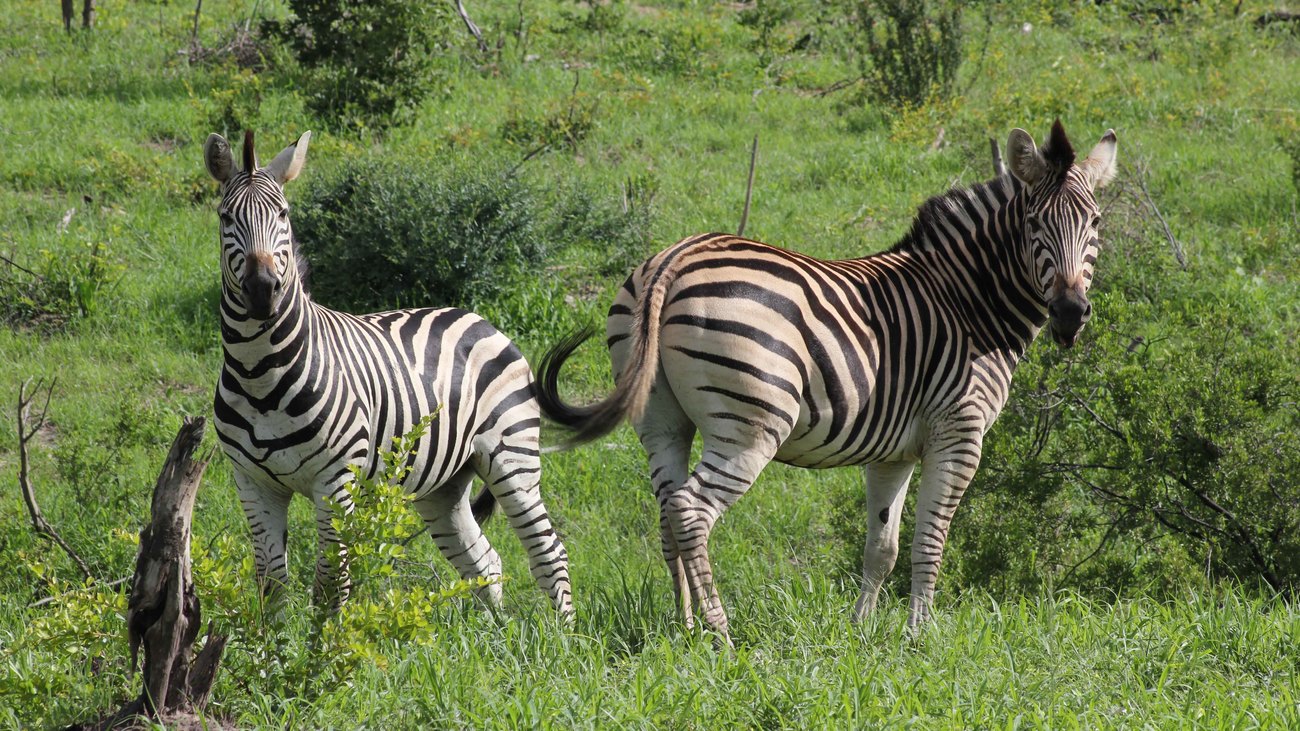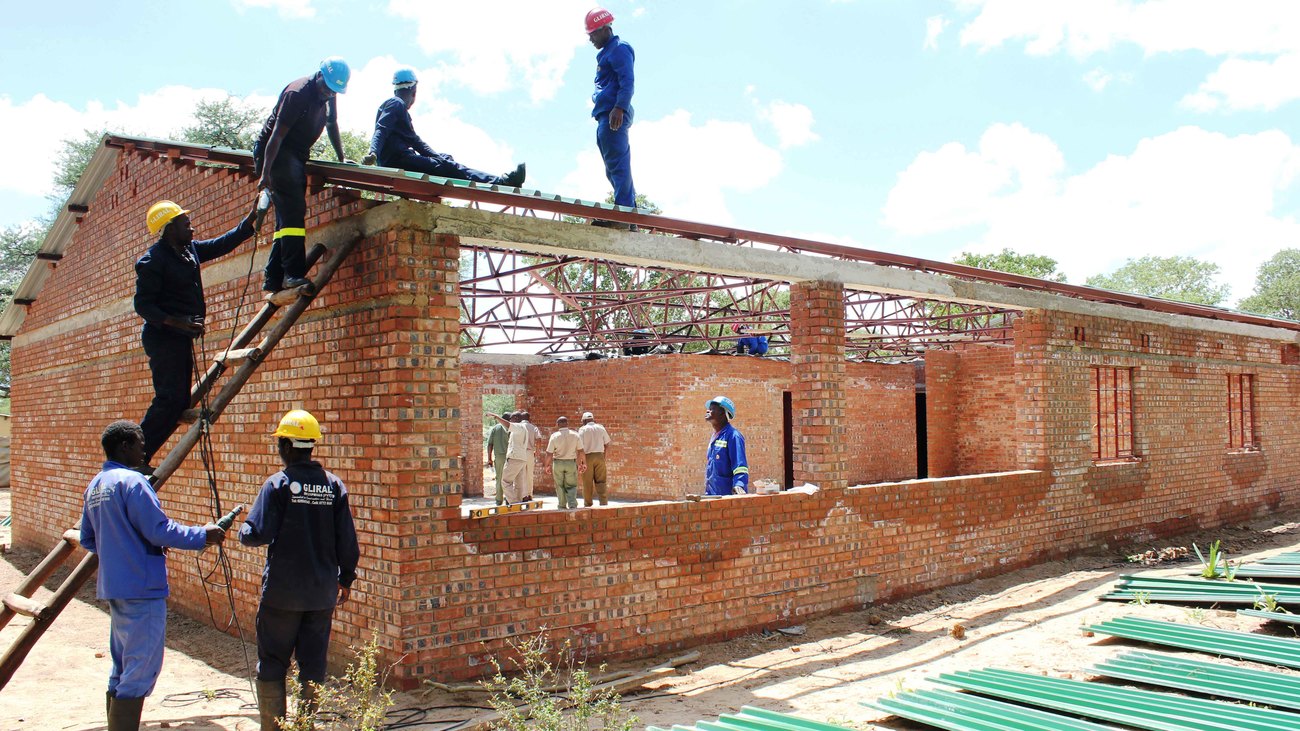Blog
These animals have some of the biggest eyes in the world
Read morewell-supported rangers in Hwange National Park strike a blow to poachers

For observant rangers undertaking patrols in the Hwange National Park in Zimbabwe, even the smallest details offer a host of information that can help them protect wildlife.
It could be the faint scuff of a shoeprint on a path worn smooth by elephants, the sight of large numbers of vultures rapidly descending in a particular area, or even the raucous alarm call of a grey go-away bird. Everything in the bush tells a story and all of these could signal a poacher incursion in the park.
Ranger Innocent Chipangura, 37, says that paying attention to clues such as these help ensure safety when working in the bush, which covers a vast area of some 14,651 km2 (5,627 square miles).
“There are lots of elephant here, but if you are careful it’s fine,” Chipangura says. “I’ve never had a problem with them, but you must look and listen carefully when you are walking out on patrol. It’s the same with lions or even poachers.”
The field rangers, usually in teams of two or three, are deployed on patrols to monitor poaching activity and gather information on the environment in general. The teams record wildlife sightings, note water availability, and try to determine the cause of death if an animal carcass is found.
“We usually get up at sunrise before cooking breakfast and go on patrol,” ranger Bendson Mudende, a forty three year old father of four says. “It can be hard work but I like it, even though I sometimes miss family.”
Ranger Chipangura from Mount Darwin, a small town some 760 kilometres (475 miles) away, agrees with his colleague.
“Yes, you think about your family when you are out in the bush,” Chipangura said. “I haven’t seen my mother for many months. Mount Darwin is very far away. The lockdown (related to the COVID-19 pandemic) has also made it very difficult because for a long time we were not allowed to travel between towns.”
It’s a tough job made tougher by the harsh conditions from the bordering Kalahari Desert – intensely hot temperatures and freezing cold in the winter. But the mere presence of the patrols acts as a deterrent to the poachers, many of whom are also experts in bush craft and will notice similar signs as an indication of ranger activity.

There’s no doubt that well trained and well supported rangers perform better in the field. Guided by ZimParks, we’ve made rapid interventions over a matter of months to ensure rangers at Makona remain supported.
Upgrading the 80 km road between Main Camp and Makona has cut vehicle response time by up to 50% and reduced wear and tear on vehicles. The purchase of two new patrol vehicles and additional refurbishment of two vehicles has made it possible for rangers to venture further into the landscape. We’ve also supported the retraining of 25 rangers and provided extra patrol rations for 176 rangers.
Construction is well under way with the building of a fully functional camp at Makona that includes an administration block, ranger housing, and a recreational centre. 56 rangers and their families will soon make the camp their permanent home. With buildings already at roof height, we expect occupancy well before mid-2021.
The installation of a landscape-wide VHF radio network managed by ZimParks will be another key game changer for ranger patrols. Until now, patrols in remote areas have often been managed with no or limited communications for up to two weeks at a time. Used effectively, radio communication will improve response to incidents of poaching, and could literally be a lifesaver should rangers be attacked by either poachers or even dangerous wildlife.
IFAW support for Zimbabwe Parks and Wildlife Management Authority (ZimParks) in Hwange National Park largely focuses on the remote 4,500 km² Makona subsector of the park. Here, rangers manage a 160 km border shared with community lands as well the shared border with neighbouring Botswana.
Elephant poaching at Hwange NP has declined significantly in the last year due to increased patrolling largely enabled by IFAW’s help with the provision of additional rations and new patrol vehicles. In the Main Camp, Sinamatela, and Robins Camp areas, no cases of elephant poaching were recorded in 2020—an amazing feat considering the impact of COVID-19 on tourism and day-to-day park activities.
every problem has a solution, every solution needs support.
The problems we face are urgent, complicated, and resistant to change. Real solutions demand creativity, hard work, and involvement from people like you.
Unfortunately, the browser you use is outdated and does not allow you to display the site correctly. Please install any of the modern browsers, for example:
Google Chrome Firefox Safari